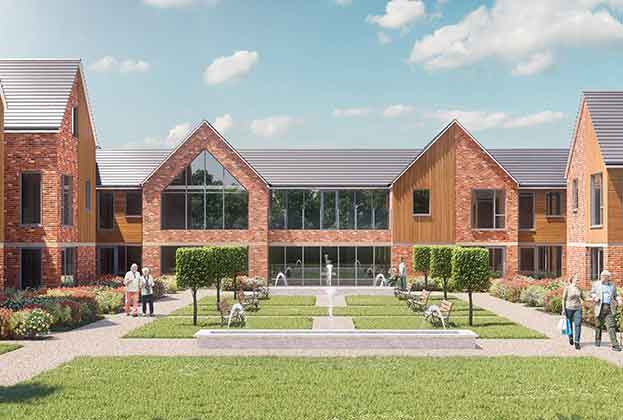There is often a perception in the UK that the only type of care available for the elderly is in a home, the vision of which is a dated building with stark walls and questionable levels of actual care. However, the reality is that there is a huge variety of options available for the diverse requirements for an older generation which is increasingly wanting to remain independent in their later years. What can sometimes be confusing, however, is the difference between the types of care available and the corresponding terms used to describe them.
Here we outline the main types of care available throughout the UK.
Nursing Care Home
A residential care home but with medical tasks supervised by qualified nurses.
Residential Care Home
A care home offering personal care for the elderly with 24-hour domestic support (cleaning, cooking, dressing, washing, and so on).
Extra Care Housing
Homes providing the highest level of personal and domestic care for the elderly. These schemes have a service registered to provide personal or nursing care on site 24/7. Typically at least one daily meal will be provided and there will be additional shared facilities. Some schemes specialise in dementia care or may contain a dedicated dementia unit.
Enhanced Sheltered Housing
Sheltered housing with additional services to enable older people to retain their independence in their own home for as long as possible. Typically there may be 24/7 (non-registered) staffing cover, at least one daily meal will be provided and there may be additional shared facilities. This can also be referred to as ‘assisted living’ and ‘very sheltered housing’.
Retirement/Sheltered Housing/Close Care
This can refer to a group of self-contained flats or bungalows reserved for people over a certain age, for example 55 or 60. These schemes may have some shared facilities, such as a residents’ lounge, garden, guest suite or laundry and will include on-site supportive management. Properties within these developments are usually owner-occupier or rented on secure tenancies.
Age Exclusive Housing
Housing that is designed, built and let or sold exclusively to those who are typically aged over 50 or 55 but which does not include the supportive on-site management characteristic of sheltered housing. These developments don’t usually have any shared facilities except perhaps a garden.
Dementia/Specialise
Care homes providing long-term care for dementia patients.
Wheelchair/Disabled Friendly
Housing that provides direct access for disabled people to all areas to allow independent living.
Open Market Housing
Housing available to all – not offering any assistance to the changing needs of the elderly.
Further information
.jpg)
.jpg)
